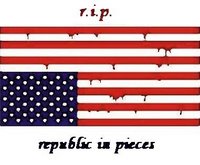|
Fooled and Co-Opted from Day One:
Believing they are swearing
loyalty to their Research shows that nowhere
in ‘Public Service’ So, what difference does it
make if our sons To forsake, willingly or
not, negate One’s loyalty As the US Constitution
along with the Bill of Rights FACTS as per US Military Federal law requires everyone who enlists or re-enlists in the Armed Forces of the United States to take the enlistment oath. The oath of enlistment into the United States Armed Forces is administered by any commissioned officer to any person enlisting or re-enlisting for a term of service into any branch of the military. The officer asks the person, or persons, to raise their right hand and repeat the oath after him. The oath is traditionally performed in front of the United States Flag and other flags, such as the state flag, military branch flag, and unit guidon may be present. In the Armed Forces EXCEPT the National Guard (Army or Air) I, (NAME), do solemnly swear (or affirm) that I will support and defend the Constitution of the United States against all enemies, foreign and domestic; that I will bear true faith and allegiance to the same; and that I will obey the orders of the President of the United States and the orders of the officers appointed over me, according to regulations and the Uniform Code of Military Justice. So help me God. In the National Guard (Army or Air) I, (NAME), do solemnly swear (or affirm) that I will support and defend the Constitution of the United States and the State of (STATE NAME) against all enemies, foreign and domestic; that I will bear true faith and allegiance to the same; and that I will obey the orders of the President of the United States and the Governor of (STATE NAME) and the orders of the officers appointed over me, according to law and regulations. So help me God. Guide Note: There has been some controversy about whether the phrase "So help me God" is mandatory. I have seen officers allow enlistees to omit these words, if they choose, according to their religious preference and beliefs. While federal law does not appear to make any part of the oath optional (see Title 10, Section 502 of the United States Code), military regulations often do. For example, the Army enlistment regulation (see Army Regulation 601-210, paragraph 6-18) makes the portion "So help me God" optional. History of the Oath of Enlistment During the Revolutionary War, the Continental Congress established different oaths for the enlisted men of the Continental Army. The first oath, voted on 14 June 1775 as part of the act creating the Continental Army, read: I _____ have, this day, voluntarily enlisted myself, as a soldier, in the American continental army, for one year, unless sooner discharged: And I do bind myself to conform, in all instances, to such rules and regulations, as are, or shall be, established for the government of the said Army. The original wording was effectively replaced by Section 3, Article 1, of the Articles of War approved by Congress on 20 September 1776, which specified that the oath of enlistment read: I _____ swear (or affirm as the case may be) to be trued to the United States of America, and to serve them honestly and faithfully against all their enemies opposers whatsoever; and to observe and obey the orders of the Continental Congress, and the orders of the Generals and officers set over me by them. The first oath under the Constitution was approved by Act of Congress 29 September 1789 (Sec. 3, Ch. 25, 1st Congress). It applied to all commissioned officers, noncommissioned officers and privates in the service of the United States. It came in two parts, the first of which read: "I, A.B., do solemnly swear or affirm (as the case may be) that I will support the constitution of the United States." The second part read: "I, A.B., do solemnly swear or affirm (as the case may be) to bear true allegiance to the United States of America, and to serve them honestly and faithfully, against all their enemies or opposers whatsoever, and to observe and obey the orders of the President of the United States of America, and the orders of the officers appointed over me." The next section of that chapter specified that "the said troops shall be governed by the rules and articles of war, which have been established by the United States in Congress assembled, or by such rules and articles of war as may hereafter by law be established." The 1789 enlistment oath was changed in 1960 by amendment to Title 10, with the amendment (and current wording) becoming effective in 1962. Much of the above information courtesy of the Army's Center for Military History
We all see the
destination in which JEFFERSON STATE MILITIA INDEX PAGE
Unless otherwise noted, all materials
contained in This Web Site is owned & operated totally by independent proprietorship and all content material is the responsibility of the author or entity of fact. This Web Page last updated: 08-Oct-2009 11:48 AM -0700 WEB Page Created by James Mark Enterprises. ® Shasta Lake, California
|
|

